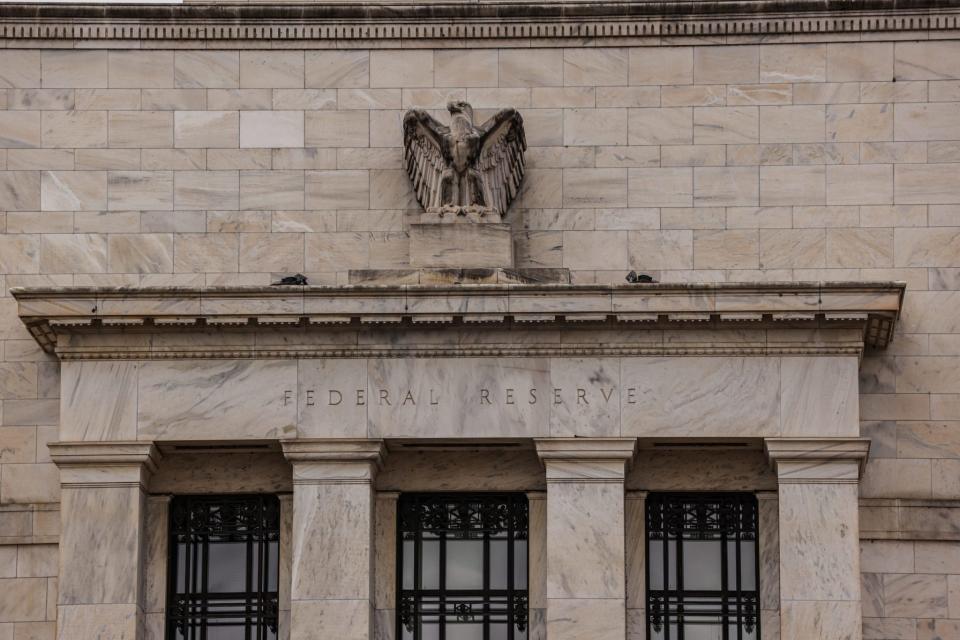Don’t expect interest rate cuts anytime soon, says former Fed bank examiner

Good morning. It looks like the economy isn’t going to get a boost from lower interest rates that many anticipated, according to Mark T. Williams, a former bank examiner for the Federal Reserve.
The U.S. Labor Department released its December CPI index on Jan. 11, which found inflation increased due to higher housing and energy prices. Overall prices rose 0.3% from November and 3.4% from the same time a year ago. That’s greater than the previous 0.1% monthly rise and the 3.1% annual inflation rate posted for November.
“The Fed wants to get to that 2% target, and it looks like they're not going to be able to get there this year,” said Williams, who is also a master lecturer in the finance department at Boston University’s Questrom School of Business. “The path of interest rate reduction is not going to be as quick as what was even anticipated just a month ago.”
The Federal Reserve announced in its Dec. 13 meeting it would leave the benchmark overnight borrowing rate unchanged—the third straight pause since July—in a targeted range from 5.25% to 5.5%, which signaled possible cuts later this year. The Fed's next meeting is slated for Jan. 30–31.
The Fed reported that 50% of the incremental increase in the CPI in December was due to the high cost of homes, which Williams identifies as a structural problem that is not transitory and that the agency will have to address. What does this mean for big banks in the U.S.? “They’re in the middle of this,” he said. For example, banks may be paying more to keep depositors' money in their accounts. “As rates change, it impacts profitability,” Williams said.
The bellwether banks
JPMorgan Chase, Bank of America, Wells Fargo, and Citigroup reported Q4 2023 and annual earnings on Jan. 12, and the results were mixed. Out of the four, JPMorgan fared the best with a record $49.6 billion in annual earnings. Bank of America’s net income in the fourth quarter was $3.1 billion, down more than 50% from the $7.1 billion the same time last year.
Wells Fargo reported net income of $3.45 billion for Q4, a slight increase from $3.16 billion the same time a year ago. But the bank warned that net interest income may fall 7% to 9% in 2024. And Citigroup’s revenue fell 3% in the quarter.
Williams noted the banks are also paying for the collapses of Silicon Valley Bank and Signature Bank in March 2023. “There’s a special FDIC assessment in the billions of dollars, and each of the big banks are paying their percentage,” Williams said. “So that's why you saw these losses as well.”
In the earnings reports, “the banks demonstrated that they tried to flush out all of the big losses that they had,” Williams explained. If banks need to increase revenue, they’re going to find ways to reduce costs, including reducing staffing, he said.
A technology bet
On Citi’s earnings call, CEO Jane Fraser said the bank will eliminate 20,000 roles in a move that will save it as much as $2.5 billion. In September, Fraser initiated the biggest restructuring of Citi, which trimmed it down from 13 management layers to just eight.
Citi is betting on tech to create growth in the long term. “In total, we invested over $12 billion in technology in 2023,” Citi CFO Mark Mason said on the earnings call. “Beyond transformation, our technology investments are also focused on digital innovation, new product development, client experience enhancements, and areas that support our infrastructure.”
Citi is looking at technology as a means to reduce costs and headcount, Williams said. “A lot of focus is on AI right now,” he said. “How can you use AI, not just to reduce cost, but to find a new way to create new revenue?”
Citi created the new position of chief client officer, and promoted David Livingstone to the role. He previously served for almost five years as CEO of Citi’s activities in Europe, the Middle East and Africa.
“One of the things he will do is be involved in AI,” Williams said. “You're using alternative data, in alternative ways to seek new clients and products.”
Sheryl Estrada
sheryl.estrada@fortune.com
This story was originally featured on Fortune.com

 Yahoo Finance
Yahoo Finance 